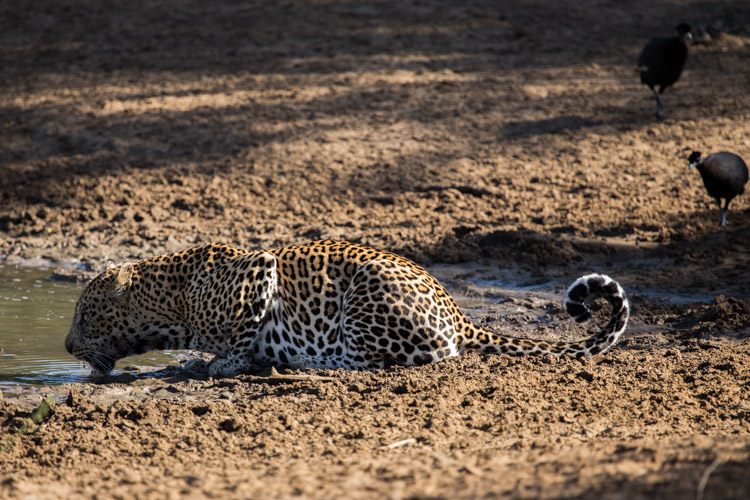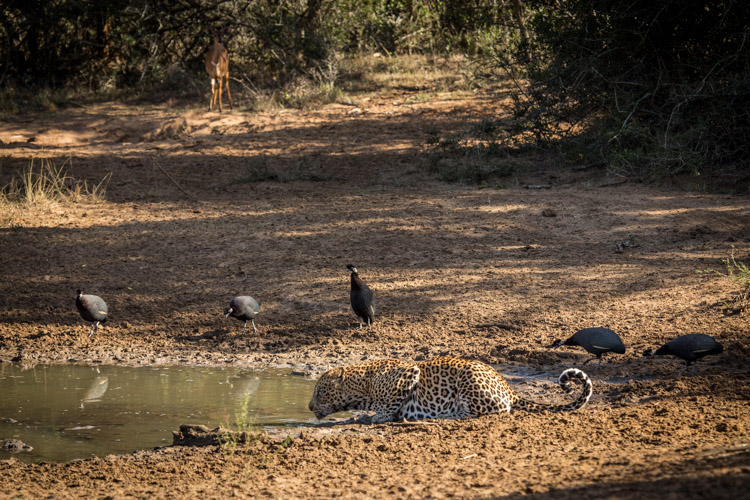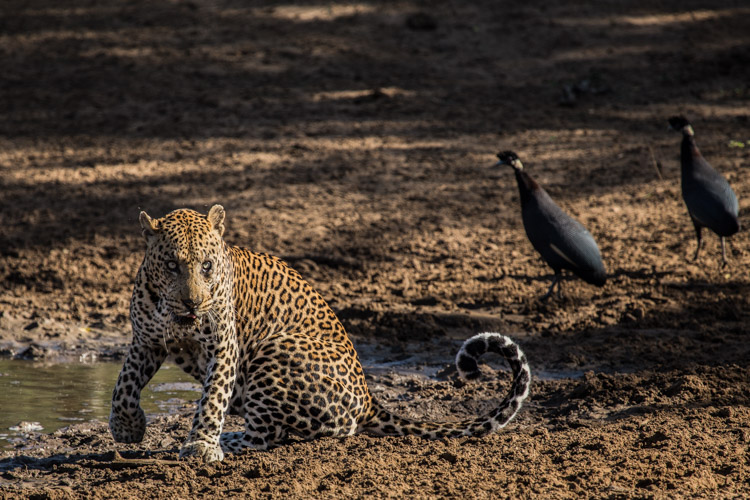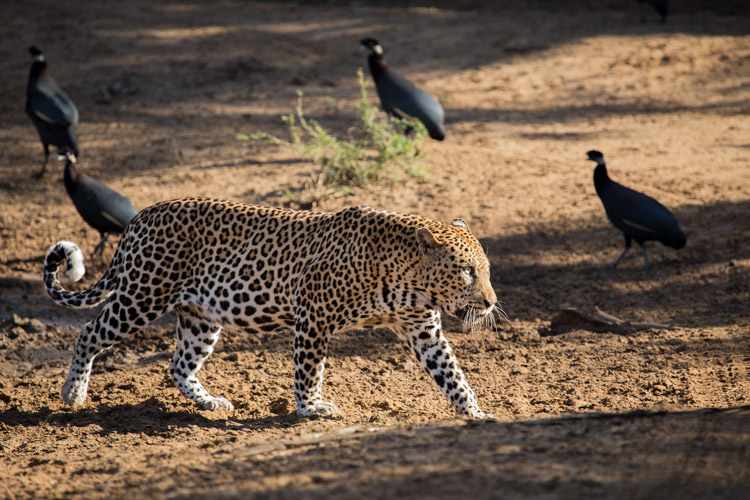
Tracking a Leopard at Phinda Game Reserve
I spotted a leopard! A year and a half after my first safari my eyes and ears have become better trained and I am only just now starting to pick up on bush clues that help in locating an animal. I am certain that my pride will be rewarded with an expertly spotted rock or tree stump next time, but for now I am enjoying my small moment. The only reason I spotted a leopard is because our experienced ranger and tracker at Phinda Game Reserve had already located the Menzi Male leopard in the area. Experienced rangers and trackers are an integral part to an amazing safari. Rangers ply you with information about every animal, bird, plant, and insect in the bush. It’s a complicated job entertaining guests, spotting elusive animals, maneuvering a massive vehicle through the bush, ensuring the safety of the guests, and not interfering with the wildlife or altering the course of events by having humans present. But the greatest advantage of an experienced ranger and tracker is their ability to locate the animals that guests have come to see.
During my most recent visit to Phinda Game Reserve, I was once again blown away by the quality of the guiding. We set off in search of cheetahs, but little did we know that our ranger has a connection with the Menzi Male leopard. He has uncanny ability to locate this beautiful, large, dominate leopard and predict his movements. As we set off in the direction of the cheetahs, our tracker spotted leopard tracks in the sand. The ranger and tracker hopped off the vehicle and quickly determined these were fresh tracks of the Menzi Male. We changed course and went off in pursuit of him.
We drove around to the road that ran parallel to the one where we had found the tracks hoping he would cross the dense thicket and we would find him or his tracks crossing the parallel road. With no additional clues on the nearby road, we went back to the spot where we last had the tracks. The ranger grabbed his rifle and headed off into the thicket with the tracker. After several minutes the tracker appeared. Normally the ranger would be the one to return to the vehicle and leave the tracker to try and find the animal, but given this ranger’s ability to track this particular leopard the tracker drove the vehicle to the other side of the block. The anticipation was building and it seemed likely we were going to find the elusive leopard. As we waited for the ranger to reappear, we heard a nyala alarm call and then the Menzi Male popped out on the road before slinking back into the thicket.
We picked up the ranger and continued tracking the leopard. As we drove further down the road, our ranger told us to keep our eyes peeled for leopard and 30 seconds later I pointed, and said, “there he is.” We backed the vehicle up and sure enough he was stationary under a tree. Five seconds later he was mobile again. The ranger was convinced that he was heading toward water to drink so we went directly to the water hole and waited. Patience is often the key to an amazing sighting and the most rewarding are often those you have waited for. Finally, he came down to drink. He scanned the area and waited for a bull elephant to finish hydrating before proceeding to the water’s edge. As he started drinking, an nyala and several blue helmeted guinea fowl began alarm calling alerting the bush that a predator was near. It was an incredible sight.
If you go on safari and you only want to see a leopard, only have one night and expect to see the big five, are only going to be happy if you see a extremely rare pangolin, or you expect to see a kill, you might be disappointed. The guides and trackers are good and trained to help ensure you have an amazing trip, but these are wild animals and nothing is guaranteed. My suggestion is to relax, relinquish control, and allow your ranger to determine where to go and which animals will provide the best sightings. You might start out looking for cheetahs and be rewarded with an amazing, unobstructed view of a leopard.






